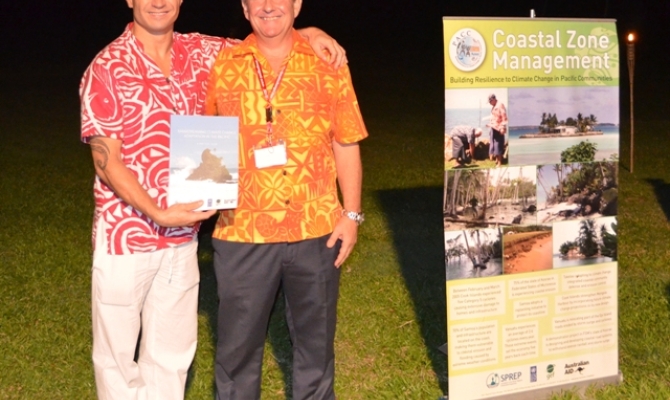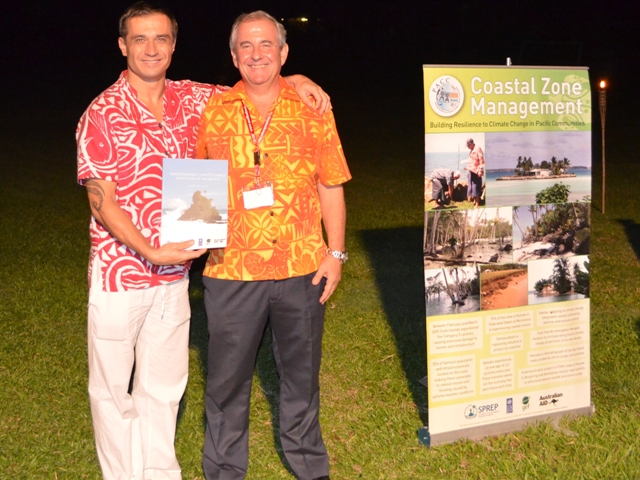
Climate Change Resilience
The Pacific Adaptation to Climate Change (PACC) Project has launched a comprehensive practical guide to mainstreaming climate change adaptation in the Pacific. A key output of the project, the guide represents a significant step forward in incorporating climate risks into development planning and practice in the region.
 Mr Gabor Verecai of UNDP and Mr. David Sheppard Director General of SPREP at launch
Mr Gabor Verecai of UNDP and Mr. David Sheppard Director General of SPREP at launch"Climate change actually threatens all aspects of development," says PACC Project Manager, Taito Nakalevu. "That's why we need to take it into account for all policy development, as well as projects on the ground. This mainstreaming guide shows people how to do that."
The guide follows standard project and policy cycles and shows how climate change risks can be incorporated at each step in the process. For example, when analysing a situation ahead of designing a project, climate projections can be included to understand how the future climate might impact the project. Vulnerability assessments can be carried out in light of possible changes in climate, and activities can be oriented towards reducing these vulnerabilities.
The guide includes case studies from the region, many of them drawn from the PACC project itself. PACC has pilot projects in 14 Pacific island countries, demonstrating best practice in three key climate-sensitive areas: food production and food security, coastal zone management, and water resources management.
"The aim is to have climate risks included as a matter of course in all decision making at all levels," explains Taito. "The PACC Project is addressing this from the bottom up, through the demonstration projects, and also from the top down through efforts to mainstream at the highest policy levels. It's a new approach, and we are pleased with the results so far."
The mainstreaming guide is aimed at country practitioners, regional governments and organisations, and development partners. The PACC team hopes to collect experiences and lessons learned over the next few years and use these to review and revise the guide over time.
The Secretariat of the Pacific Regional Environment Programme (SPREP) is the implementing partner of the PACC project, which is funded by the Global Environment Facility and the Australian Government, with the United Nations Development Programme as the implementing agency.